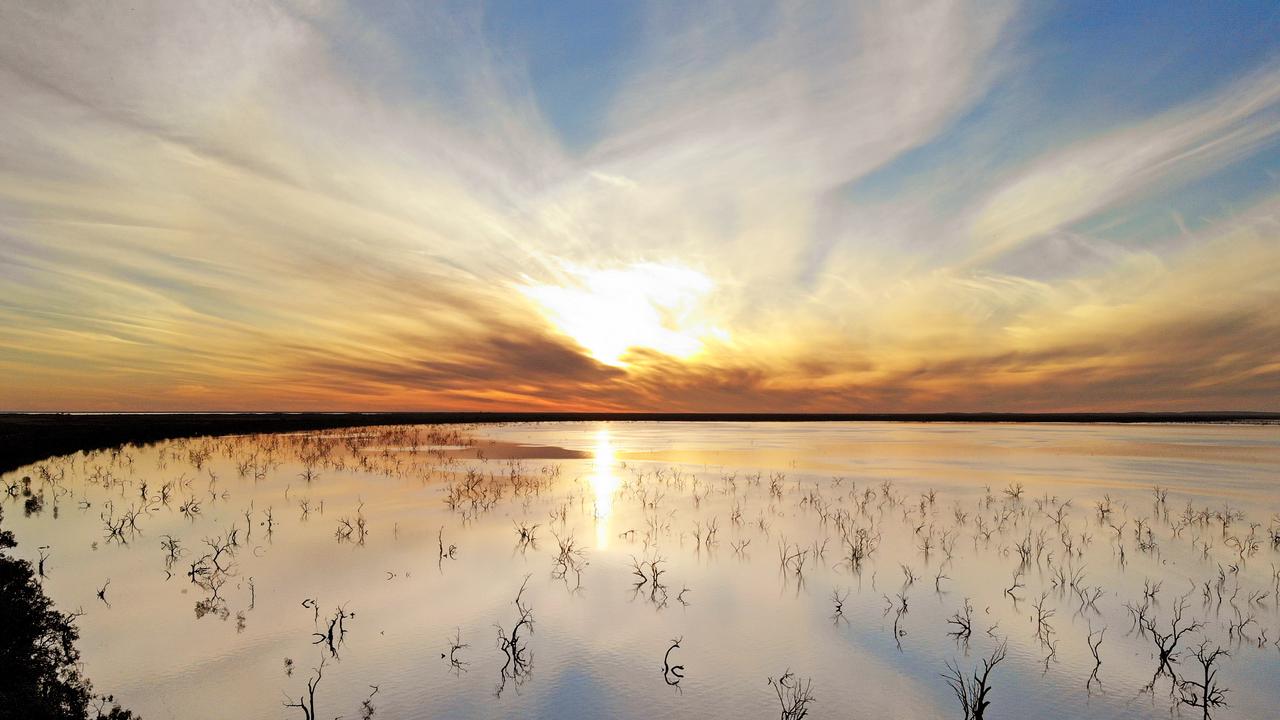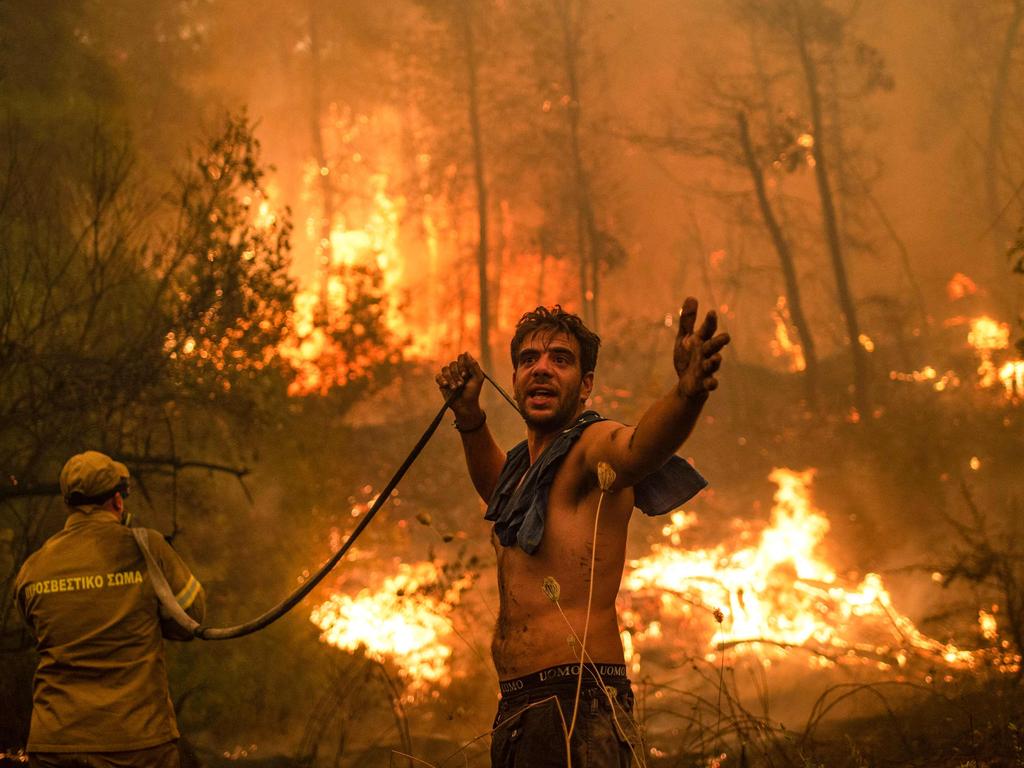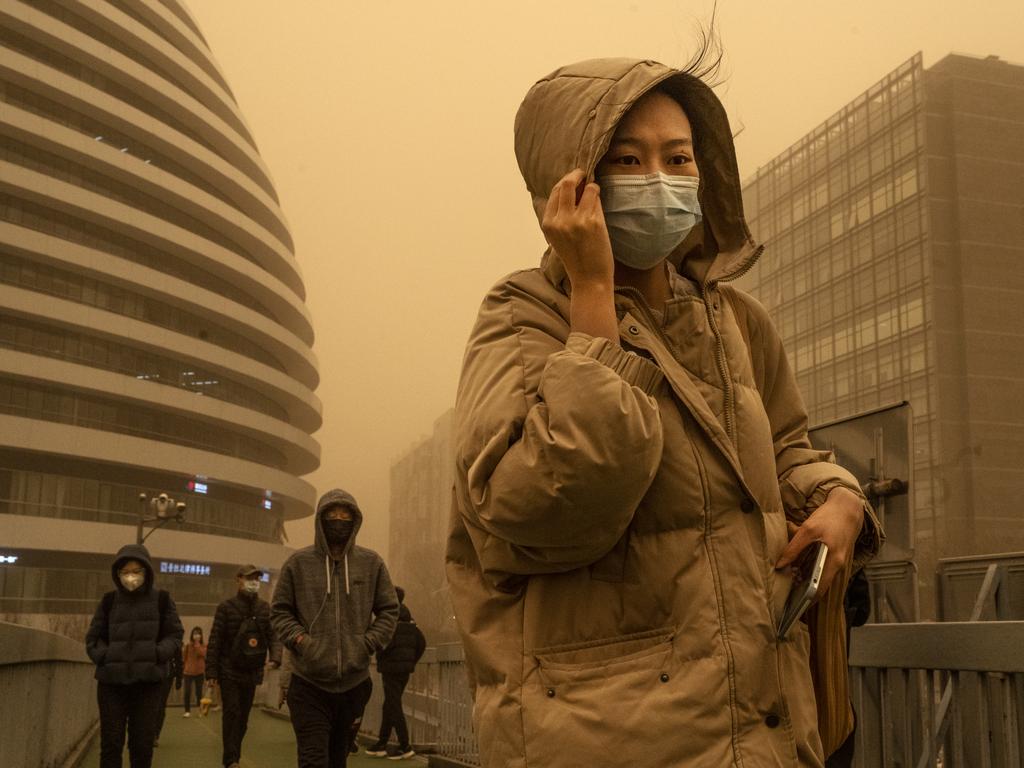Photos: Extreme weather that shocked us in 2021
From floods and fires to daily temperatures that hit new records, Australia and the rest of the world witnessed extreme weather. SEE THE PHOTOS

Environment
Don't miss out on the headlines from Environment. Followed categories will be added to My News.
The world’s weather continued to go completely rogue in 2021, with extreme threatening to become the new normal.
Meteorological summaries for the year won’t be published until 2022, but the data we know so far is bleak.
July was named Earth’s hottest month ever by the US National Oceanic and Atmospheric Administration, while dire new maximum temperature records were set in Oman (51.6°C), Canada (49.6°C), Turkey (49.1°C), Italy (48.8°C) and Spain (47.4°C).
A 38°C day in Siberia from June 2020 was also belatedly confirmed as the hottest-ever temperature recorded in the Arctic Circle.
Wild weather events were a constant in newsfeeds.
Floods in Europe in July claimed 242 lives, brought on by rainfall totals that were higher than any seen in 1000 years, in some areas.
A heatwave in western Canada in June killed more than 500 people in five days. Greece and Turkey battled worst-ever wildfires.



Weather records tumbled in Australia, too, according to the Bureau of Meteorology.
Average temperature records were broken in Tasmania in June, while maximums were smashed in NSW, WA, Qld and NT in July. It was also the warmest October on record for Queensland’s Central Coast.
NSW had its second-wettest March ever, and its wettest-ever November, as did SA. Nationally it was our wettest November in 122 years.
The extreme weather records came in a year of increasing global focus on climate issues, starting with US President Joe Biden decreeing the US would rejoin the Paris Agreement on his first day in office, and culminating in the COP26 conference in Glasgow in November.




Dr Jonathan Symons from Macquarie University said momentum on global climate politics in 2022 could hinge on the passage of Biden’s “Build Back Better” bill, currently being debated in the US Congress.
“The mood in the US really turns on the fate of that [bill],” Dr Symons said.
“About one third of its spending is focused on climate measures. If that fails then the Biden administration will be weakened domestically and internationally, and its capacity to drive international focus on climate change will be limited.”



While climate issues are sure to get a good airing in the federal election, some have suggested the COP27 conference in Egypt in November 2022 will be less high-profile than COP26, as the British government and even the Royal Family were unusually invested in the Glasgow event’s success.


But Climate Council CEO Amanda McKenzie was not so sure.
“It was great Boris Johnson and others in the UK really pushed [the climate issue], and we might not see that level in Egypt, but there are a whole lot of other factors that drive attention,” she said.
The increasing incidence of extreme weather events was prompting a “massive acceleration in action,” Ms McKenzie said.
“It was also very clear coming out of Glasgow countries were expected to come back with stronger 2030 [emissions reduction] targets in 2022. There will be a lot of attention on Australia, and whether we have done our homework or not,” she said.
Originally published as Photos: Extreme weather that shocked us in 2021









